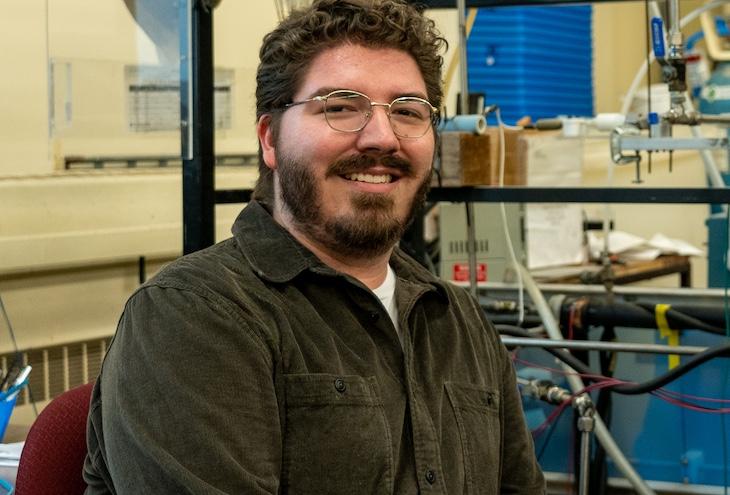When James LeMoine became one of the inaugural recipients of the Indigenous and Black Engineering/Technology (IBET) Momentum Fellowships in 2021, it marked a turning point. The fellowship — currently available to PhD students in engineering and computer science at 16 Canadian universities — not only offers significant financial support and opportunities to meet other Indigenous engineering students, it can also be a wake-up call for the institution.
After not meeting any other Indigenous STEM colleagues during six years at McMaster University in Hamilton, Ontario, LeMoine was introduced to a community of peers across Canada through the IBET fellowship. “That scholarship got me recognized at Mac (McMaster), and because there were so few applicants, it showed that the lack of Indigenous students in engineering is a Canada-wide issue,” says LeMoine. “That’s when our school wanted to try to change that, and I talked with faculty about starting an AISES chapter.”
As founding president of the group, LeMoine attended AISES in Canada National Gatherings in the last two years and made many connections with other PhD students from across the continent. “It’s been inspiring, making me want to make our chapter strong and inspire more youth to join science and engineering,” he says. “Now there’s support and community here so they won’t feel as separated on this journey.”
Growing up in the Hamilton area, LeMoine had always wanted to attend McMaster and stay close to family. With family members at both the nearby Six Nations of the Grand River and Mississaugas of the Credit Reserves, he had many Indigenous friends in elementary and high school.
LeMoine’s grandmother had avoided residential school because she was more fair skinned than her siblings but was warned never to speak her language or tell anyone she was Indigenous. However, his mother and aunts worked hard to reclaim their culture, teaching him as they learned themselves. “My aunt would give (a workers union) group a smudge and show me how to light the sage and fan it with a feather,” LeMoine recalls. “I was probably seven years old. One day, I did the smudging for the group in her absence. They were very impressed and gave me my own smudge kit to continue those teachings for different groups.”
Making good friends in his first weeks of university helped tremendously with managing the heavier post-secondary workload. When LeMoine realized he wasn’t likely to meet many Indigenous students in engineering, he chose elective courses in Indigenous studies and language. “I could teach my aunts things I’d learned from the Anishinaabe professor and elders who came to campus,” explains LeMoine. “It went from my aunts teaching me everything to helping them a little. Now it feels like our whole family is working together to rebuild our knowledge of the culture.”
LeMoine was drawn to engineering because it combines aspects of science, math, and art, but he became most fascinated by the courses involving energy. His research has focused on electrohydrodynamics, exploring how improving heat transfer can create more efficient systems that reduce greenhouse gas emissions. “A lot of ways we create energy have poor impacts on Indigenous communities, so to learn about sustainability methods is adding our voice that needs to be heard,” LeMoine asserts. “Everything I’ve designed always has that Indigenous lens just because that’s who I am.”
Volunteering with different organizations has helped expand his perspective of Indigenous issues and transform his public speaking skills. He was particularly proud to win an award for best student presentation at a conference for presenting his master’s research, knowing how hard he had worked to improve.
Working as a representative for off-campus students provided experience to advocate for Indigenous students as the AISES chapter founding president. He continues to volunteer off campus with the Hamilton Regional Indian Center and on campus with the Indigenous education councils to help create more Indigenous-focused learning. “It’s really rewarding to help Indigenous youth whichever way I can,” says LeMoine. “Education is so powerful in shaping someone’s life. It’s important that more Indigenous folks go through the STEM field so what’s best for our people is always being upheld.”













